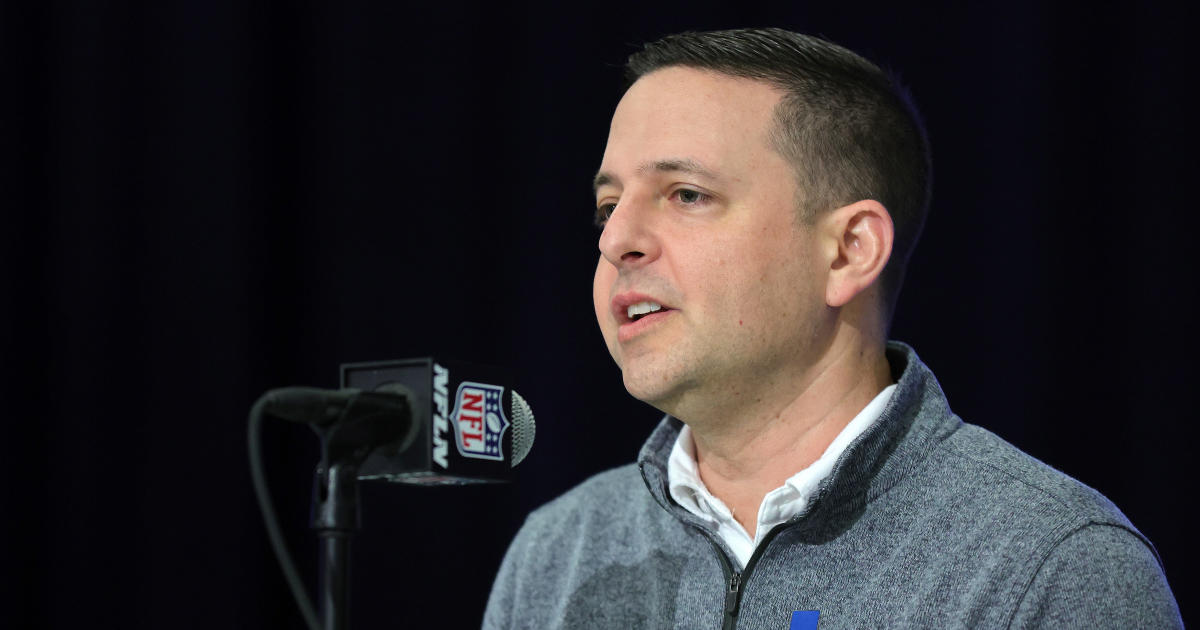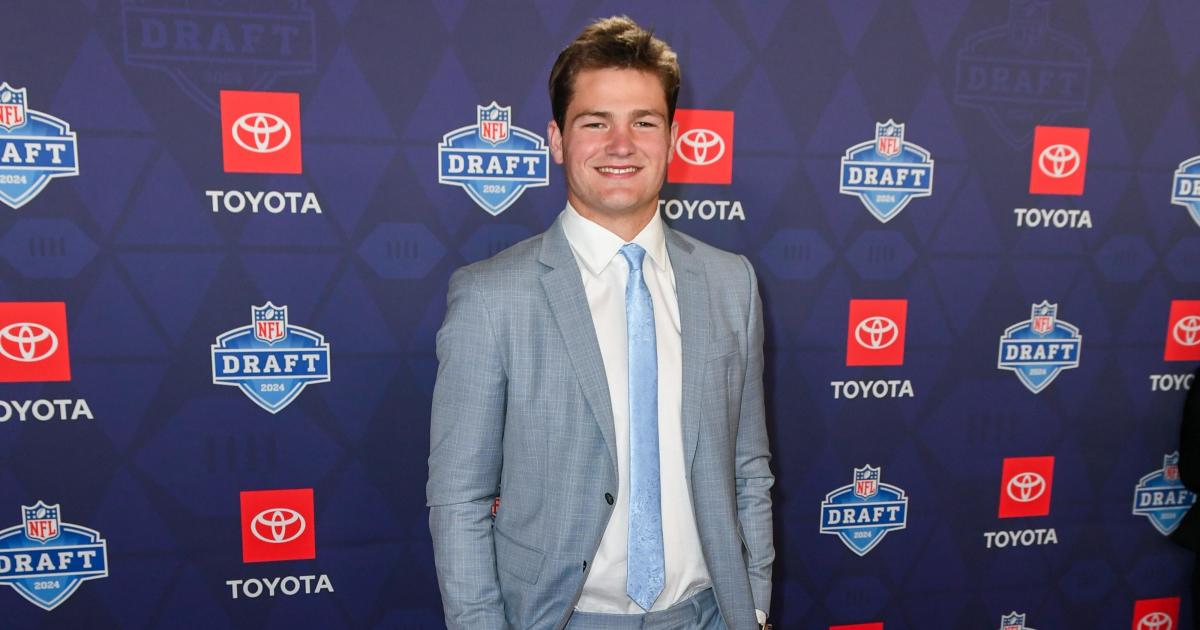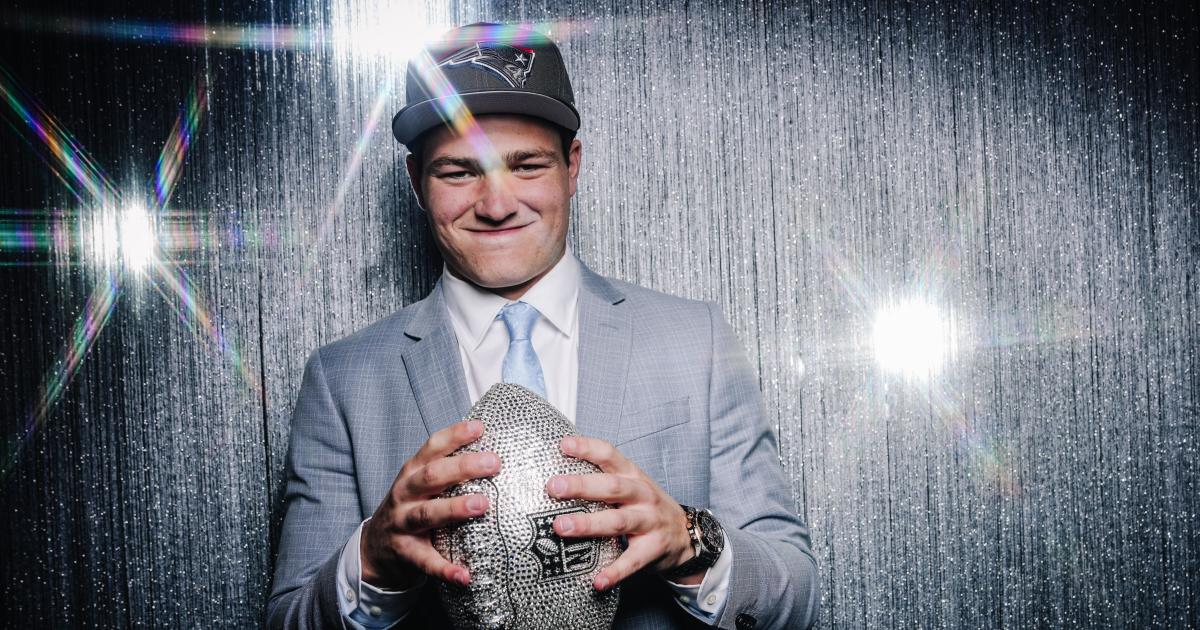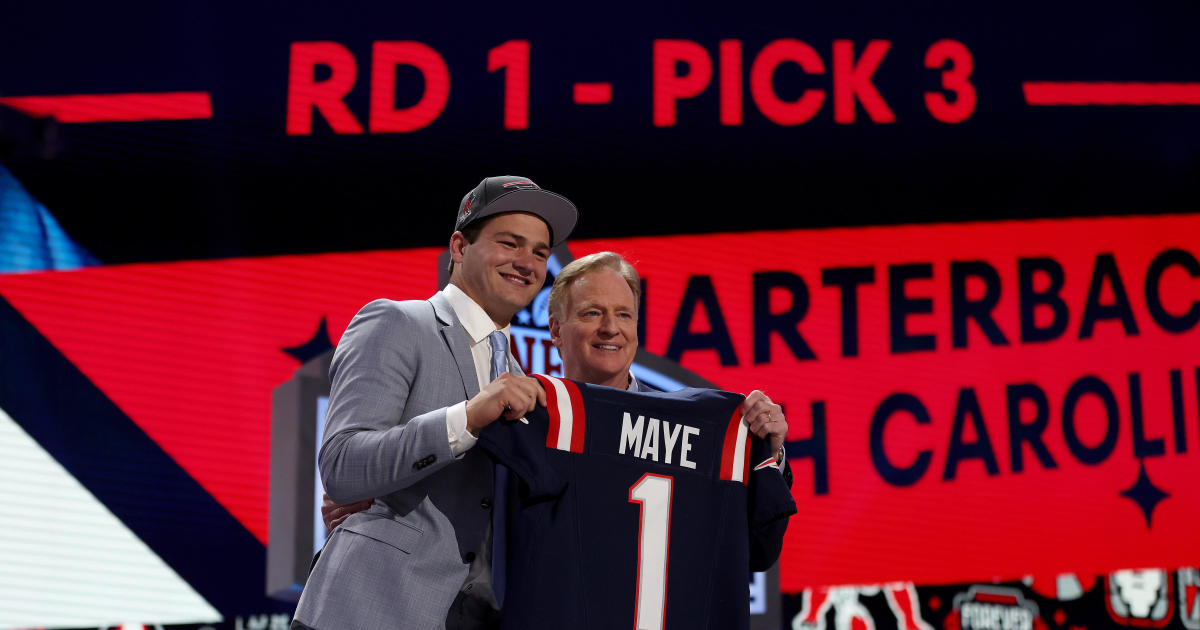Tom Brady Not A Top-Five NFL Quarterback, According To Pro Football Focus And ESPN
BOSTON (CBS) -- Oh, boy. Here we go again.
A few years ago, football analysis website Pro Football Focus shook the football world by claiming Tom Brady was the 33rd-best player in the NFL in 2010, the year that he became the first-ever unanimous NFL MVP. Now, PFF is sure to cause a similar reaction.
PFF's Sam Monson wrote an article for ESPN.com (subscription required) which claimed that Brady is no longer a top-five quarterback in the NFL.
Before you start Gronk-spiking your computer, listen to what the man had to say.
"His decline is well underway, and it's showing up in one key aspect to his game in particular," Monson wrote.
Monson noted the following:
1.) Brady completed just 57.6 percent of his passes when pressured last year, which ranked 28th in the NFL. His PFF grade went from plus-33.2 in a clean pocket to minus-14.8 when pressured.
2.) Brady struggled to avoid pressure, taking twice as many sacks as Peyton Manning despite facing pressure just 10 percent more often.
Monson summarized his article thusly: "Brady is no longer an elite quarterback. He remains very good, but if the decline continues at the same rate, it won't be long before that is no longer true."
Such a statement is no doubt worthwhile, as it's only natural for a quarterback to decline as he ages closer to 40. Yet saying that Brady is a worse quarterback than Philip Rivers and Ben Roethlisberger borders on lunacy.
To be sure, the folks at PFF do their hard work. They grade every single player on every single snap, and they draw conclusions based on their grades. They'll tell you that it's a system that is meant to provide information based on data, and statements like "Brady's no longer a top-five QB" are based in the numbers.
PFF does a lot of great work. I'm just not entirely sure this article is part of it.
There are a number of factors involved, including some which the author admits himself. For one, the offensive line was abysmal by Patriots standards in 2013, as the "unit posted its worst pass-blocking efficiency figure (a measure of the sacks, hits and hurries surrendered per pass-protecting snaps) since PFF has been grading tape."
But the bigger issue is Brady's lack of receiving options. In the brief time that Rob Gronkowski was healthy in 2013, the Patriots had a top-three offense in nearly every possible category. In the other nine games, they were middle-of-the-pack or flat-out below average. That's because the passing offense leaned almost entirely on Julian Edelman, who is solid but at 5-foot-10 is not the type of player who can get open as often as the elite receivers do. With 104 receptions on the year, Edelman nearly doubled up the second-leading receiver on the team in Danny Amendola, who himself is also a solid receiver but fought through a series of injuries throughout the season.
Monson's own argument helps illustrate this counterpoint.
"When he had the ball in his hands for 2.6 seconds or more in 2013, he completed just 45.1 percent of his passes, worst among 16-game starters," Monson wrote. "His passer rating on those throws was 69.2, worse than all but a handful of replacement-level starters."
In a vacuum, those numbers look bad. But might the reason for his holding onto the ball for more than 2.6 seconds and his inability to complete passes on such plays be that he had nobody getting open? Aaron Dobson and Kenbrell Thompkins were rookies and were learning what life in the NFL is like, and with no real receiving option at tight end, Brady was often left on an island with few options.
Monson entertains the possibility that Andrew Luck can surpass Brady on the list of best QBs, so long as "the Indianapolis Colts can give him a little more help." So in this argument, Luck is allowed to depend on help in order to be great, but Brady must do it all on his own.
There's also the fact that the Patriots built their offense as a system that relied upon two dynamic tight ends. There was Gronkowski, the behemoth who could catch any ball in any coverage, and there was Aaron Hernandez, the shifty tight end/receiver hybrid whose escapability was unparalleled. From 2010-12, 33.5 percent of Brady's completions and 34.9 percent of his passing yards went to tight ends. In 2013, with Hernandez in prison and Gronkowski on the operating table for half the year, just 13.9 percent of Brady's passes went to tight ends, who accounted for just 17.1 percent of his passing yards.
The entire foundation of the inside-out Patriots offense was taken out, leaving Brady and a band of undersized or inexperienced outside receivers to try to figure it out on the fly.
Add it all up, and you've got Brady, one of the greatest quarterbacks of all time, throwing passes to Matthew Mulligan and Matthew Slater in the AFC Championship Game. That's hardly a recipe for success. To say the Patriots did not set up Brady with the best environment to succeed in 2013 would be a gross understatement.
Still, anyone who watched knows that Brady did not play up to his own standards last year. His completion percentage, yards and touchdowns all went down, and his interceptions and sacks went up. Can the Patriots win a Super Bowl with Brady playing at that same level? No, probably not. The team is built based on the belief that Brady will be nearly flawless, so when he's anything short of excellent, the team is going to struggle.
Brady clearly declined last year, but the drop in performance isn't all about age. Brady's in excellent shape, he delivers passes with the same velocity he always has, and he's never been a quarterback who relied on anything more than a quick shuffle step to avoid a rush. If Peyton Manning can set NFL records at 37 years old, so too can Brady. It's not about age -- it's about a system that works. And the Patriots did not have that in 2013.
If the Patriots want to contend for a championship in 2014, they'll need better (and healthier) receiving options, a stronger offensive line, and improved play from Brady.
Clearly, Peyton Manning was the best QB in the game last year, and Aaron Rodgers and Drew Brees were their typically excellent selves. But suggesting that a team has a better chance of winning it all with Rivers instead of Brady? That's a tough sell. It's going to take a few more numbers than the ones provided to believe that's actually the case.
Read more from Michael Hurley by clicking here, or find him on Twitter @michaelFhurley.
MORE PATRIOTS FROM CBS BOSTON



